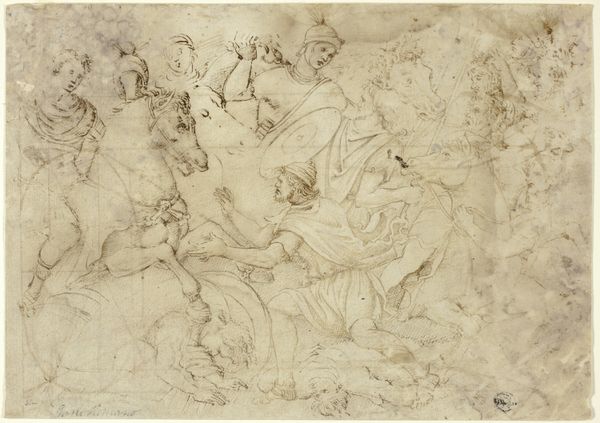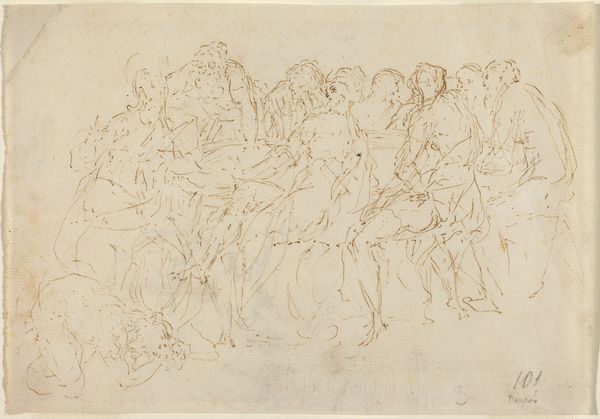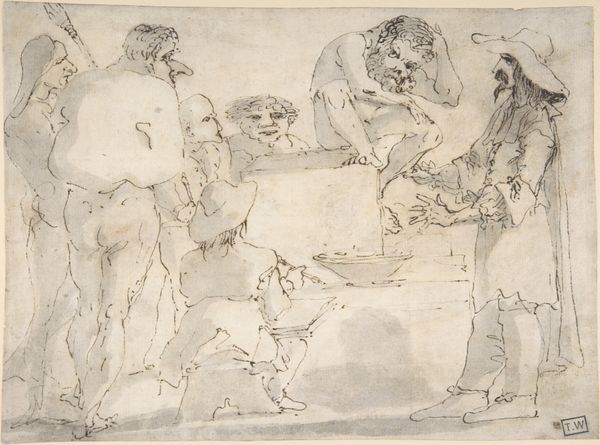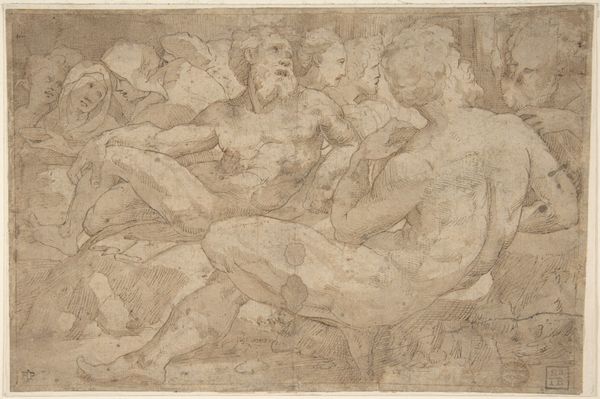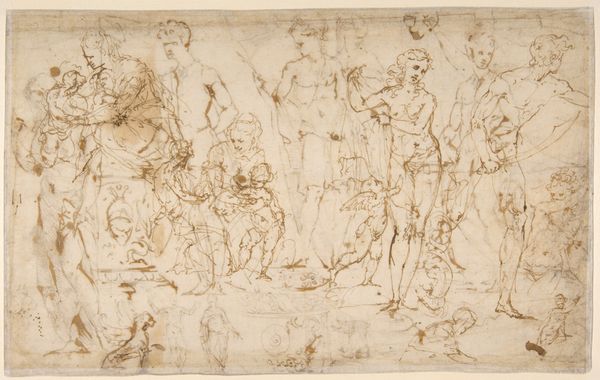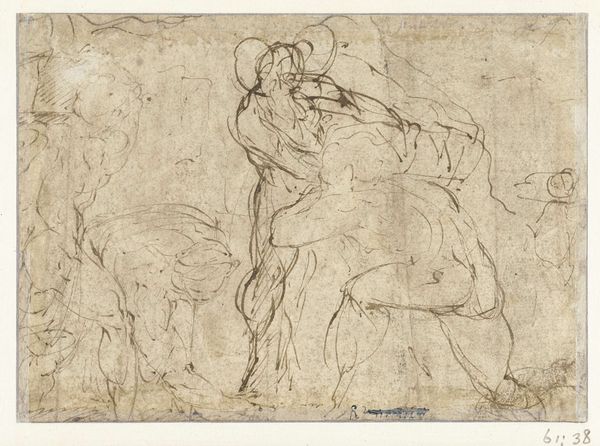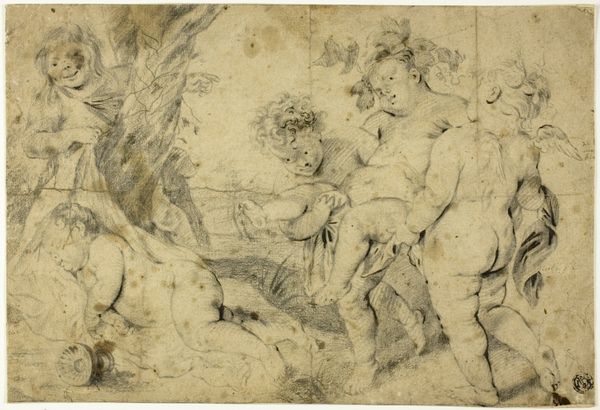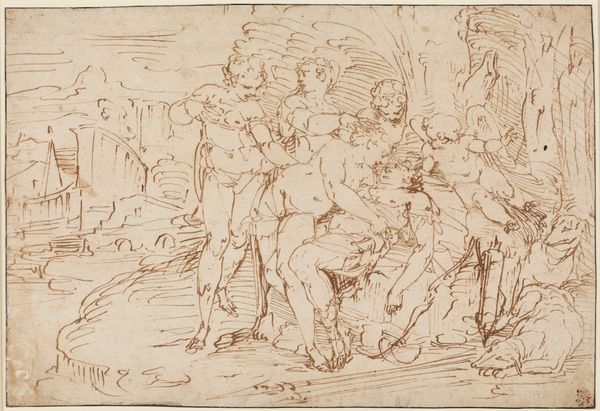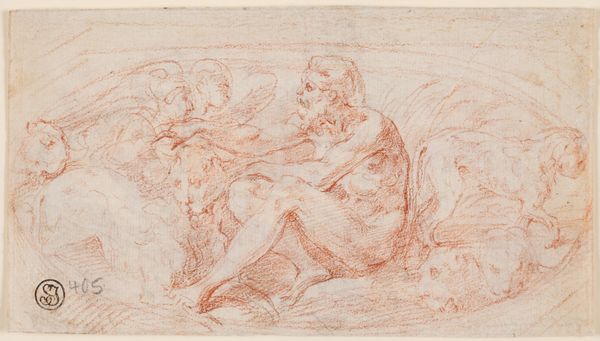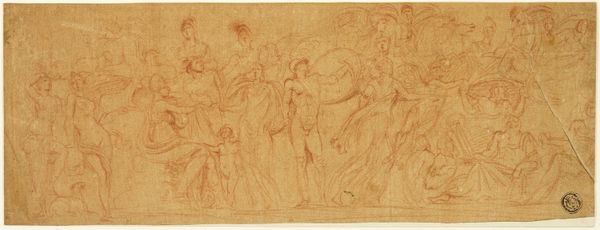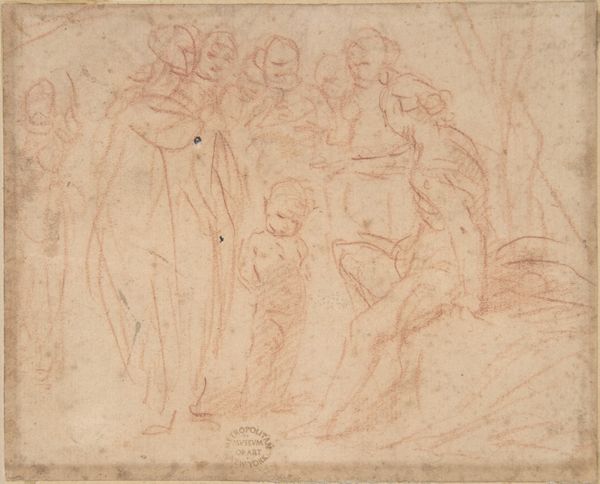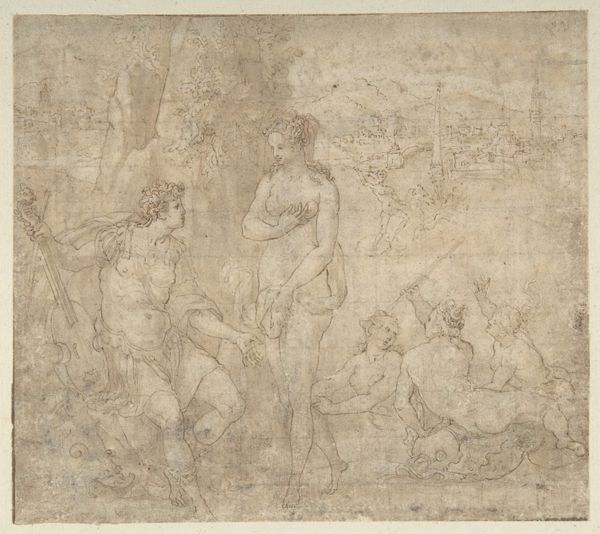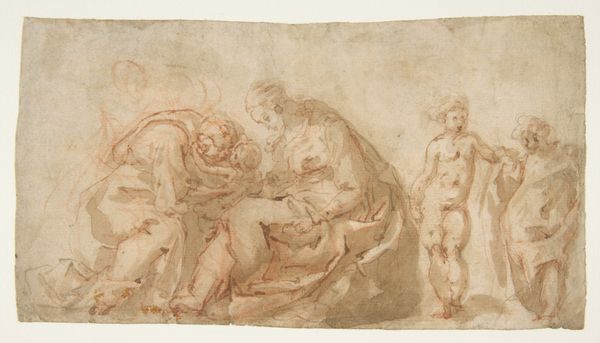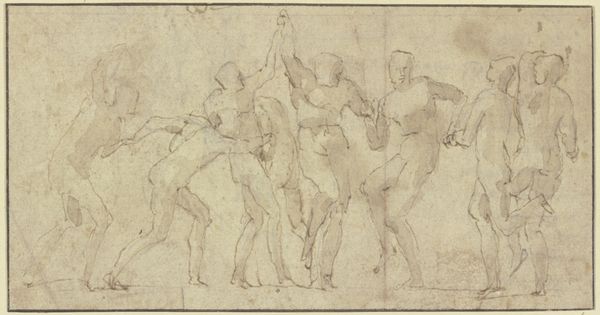
drawing, ink
#
portrait
#
drawing
#
ink painting
#
charcoal drawing
#
figuration
#
11_renaissance
#
ink
#
history-painting
#
academic-art
#
italian-renaissance
#
nude
Dimensions: 9 3/8 x 12 3/4 in. (upper corners filled) (23.8 x 32.4 cm)
Copyright: Public Domain
Editor: This drawing, "Figure Studies (after Raphael's Disputa)," from sometime in the 16th century, is in ink on paper. What immediately strikes me is the preparatory nature of the drawing. It's not the finished product, but the act of getting there, all these nude figures… what do you make of it? Curator: Well, seeing those lines made with ink, what can they tell us about Renaissance workshops? We need to consider this not as isolated genius, but in terms of production. Think about the labor involved in grinding ink, preparing the paper, and the time required for the artist to study and copy Raphael’s fresco. The availability of materials – who had access to this paper, to quality ink? It's about access and the economics of art making. Editor: So, the material reality shaped who could even *become* an artist in that era? Curator: Precisely! The study of "Disputa" wouldn't only about mimicking forms; it's a form of artistic apprenticeship, relying on both available resource, artistic convention and human agency. Are these lines made rapidly for explorations? or controlled with more care? This labor, both Raphael’s original, and this study, involves complex interactions of hand, mind, and materials within specific socio-economic contexts. Editor: I see what you mean, framing the drawing within the conditions of its production opens up new perspectives. It's not just a study of form, but of labor and access to the very tools of creation. Curator: And what does it say about cultural value if only some can do it, right? These figures may represent grand ideas, but let’s also think about the more humble, physical aspects and conditions under which it emerged. That’s its story as well!
Comments
No comments
Be the first to comment and join the conversation on the ultimate creative platform.
